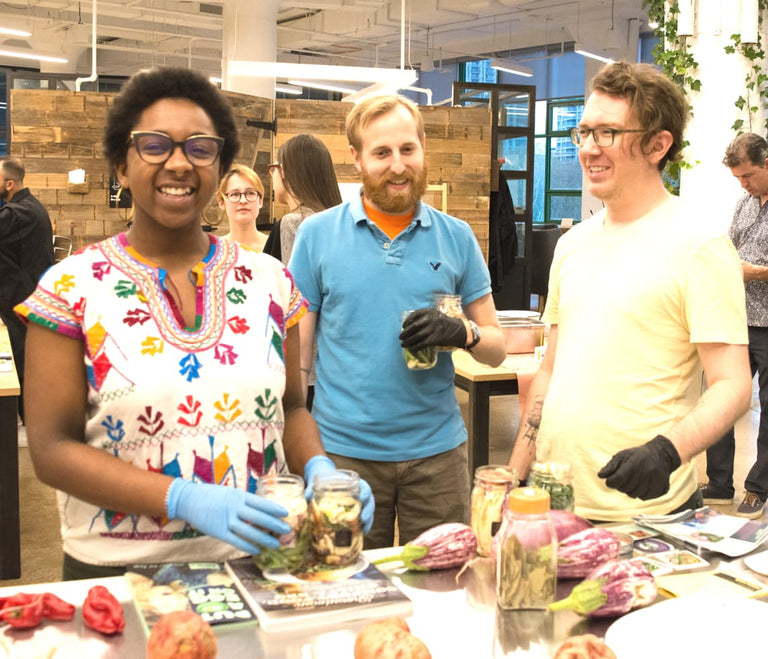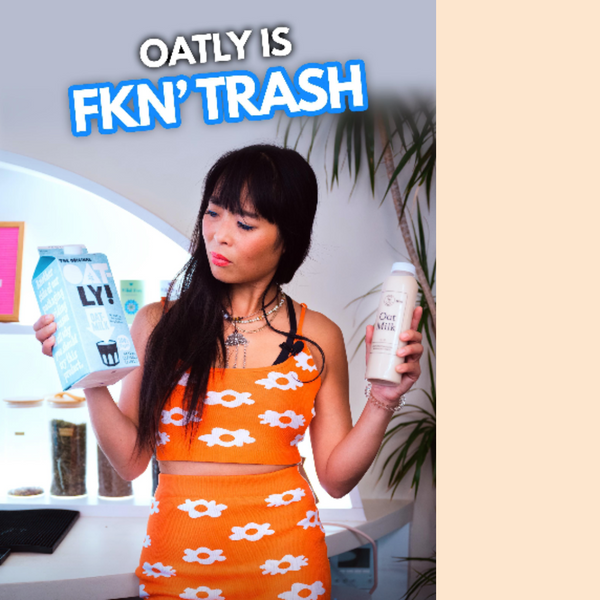Farm News: Hog Farming Has a Massive Poop Problem

Have you heard? Hog farming has a massive poop problem...
North Carolina is the third biggest hog-producing state in the United States. In some areas of eastern North Carolina, like Duplin county for instance, there are more hogs than there are people.
The facilities that house the state's vast supply of hogs produce about 10,000 gallons of waste each day, using gigantic lagoons to store excess animal droppings on-site. Producers later return to these pond-sized pools to syphon the leftover waste into sprinklers to fertilize their soil thereafter.
So, what exactly is the problem?
These sprinklers actively threaten the lives of locals with perilous health hazards and air quality risks. During times of substantial rainfall, when waste lagoons in North Carolina tend to flood, tragedies like massive fish kills and rampant illness in residents plague the state even further. Pig waste has even been found underground, posing more major health risks to residents, the bulk of whom rely upon well water to survive.
In this region, poverty rates are higher than average, and folks living here are much more likely to be people of color. In other words, this is an issue of both civil and environmental justice.
Thankfully, new technology is emerging fast.
Programs like the Manure to Energy project aim to cut the cost of sustainable solutions to the poop problem using a system of pipelines to carry waste to a processing plant where it can be converted into natural gas and added to the state’s supply. Bio-gas solutions like these have the potential to reduce hog waste emissions by up to 85%, which is big news for an industry that contributes to about 9% of our national methane emissions.
TL;DR?
Instead of waiting for powerful corporations and governments to decide social and environmental justice are worth the cost, North Carolinians have taken a united front against uncontrolled waste removal. Innovators in-state and beyond have helped eastern North Carolina hog farming move towards more sustainable solutions, contributing their share to a more equitable food system for all.
Going vegan is NOT the only available solution to this problem. Our livestock managers, like Farmer Nolan in Pennsylvania, keep small herds of heritage pigs that do not negatively impact the earth. In fact, these hogs live happy lives with plenty of room, and the land around them is fertile and healthy.
Remember: It's the way we farm that matters most.
See how our partner farmers have a food fix.
Article by Local Roots contributor Jess Santoro // @jess_santoro
Rather have a taste first?
Local Roots Experiences are fun, pop-up events where we bring the farm to you!

Become a Harvest Club Pick Up Location
Are you a NY based cafe, bar, or neighborhood business? Become a Harvest Club pick up location and have community members come to your establishment each week to pick up their Local Roots harvest.
Top






